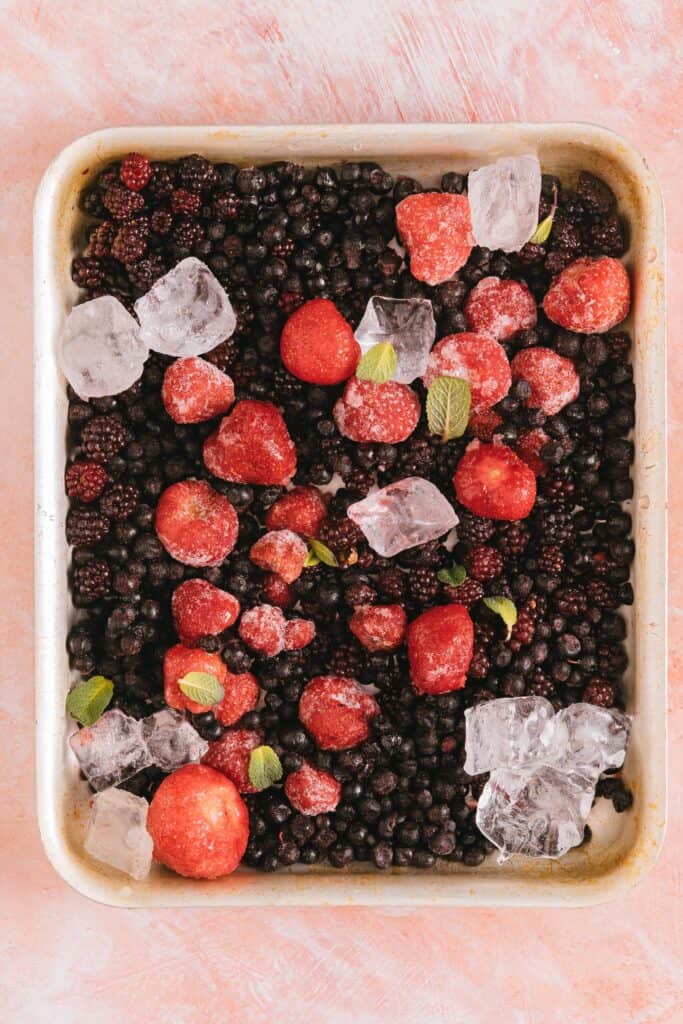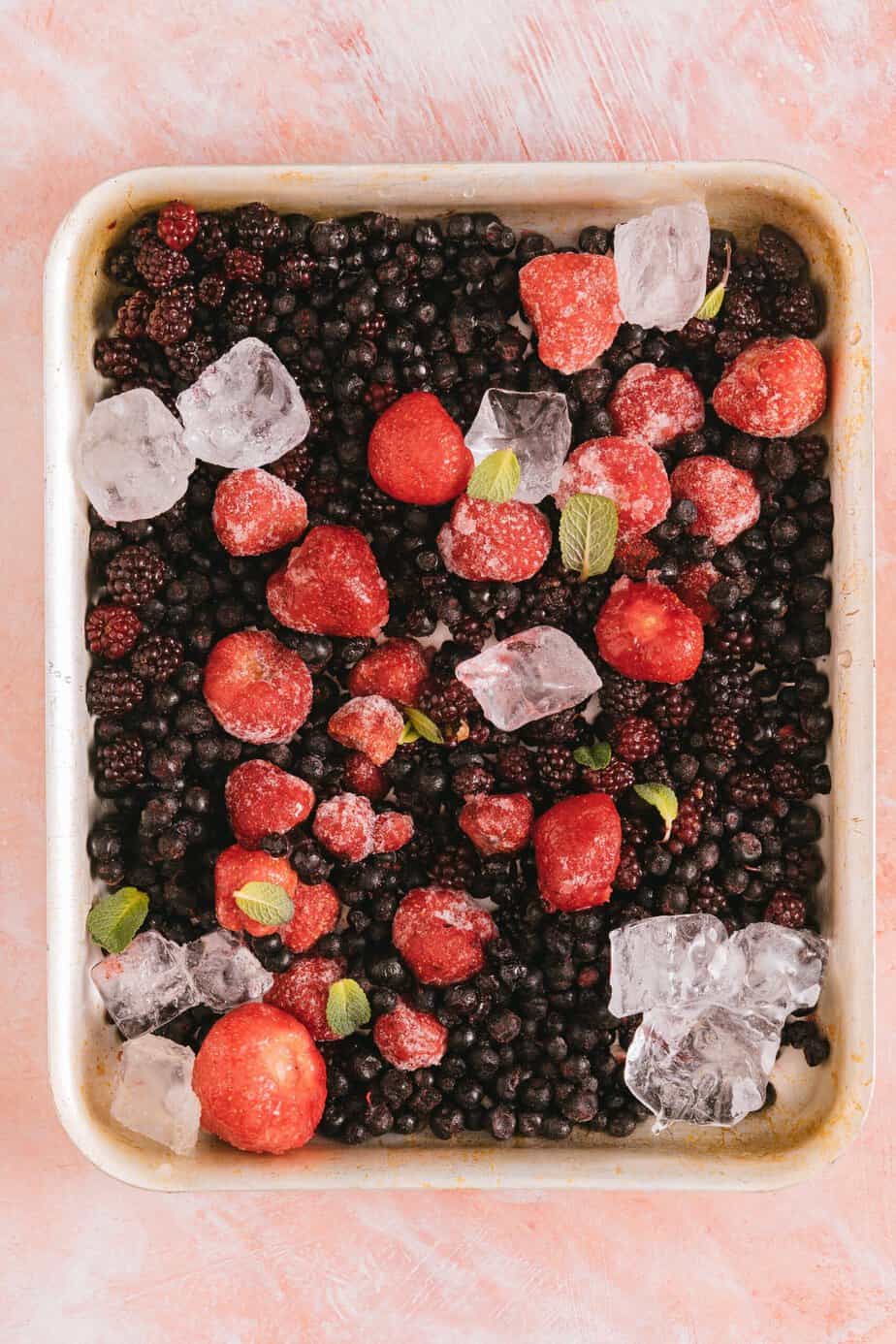Frozen foods often find themselves at the center of many debates, shrouded in myths that range from their nutritional value to safety concerns. The truth, however, is not always as straightforward as these myths suggest. Unraveling the mysteries surrounding frozen foods can not only enlighten consumers but also debunk misconceptions that have long influenced our eating habits and shopping choices.
This guide dives into the most common frozen food myths, separating fact from fiction with an aim to provide clarity and reassurance. Whether you’re questioning the healthiness of frozen meals, the safety of refreezing, or the nutritional comparison to their fresh counterparts, this exploration offers insights backed by scientific evidence and expert advice. Join us as we debunk frozen food myths, presenting a fresh perspective on frozen foods that might just change the way you view your freezer’s contents.

Frozen food has been a staple in many households for decades, and for good reason. It is convenient, affordable, and can be just as nutritious as fresh food. However, there are many myths surrounding frozen food that can cause confusion and misinformation. In this article, we will explore some of the most common frozen food myths and debunk them with facts and research.
One of the most common myths about frozen food is that it is less nutritious than fresh food. Many people assume that because frozen food is processed and stored for long periods of time, it loses its nutritional value. However, research has shown that frozen fruits and vegetables can actually be just as nutritious, if not more so, than fresh produce. This is because frozen fruits and vegetables are picked at their peak ripeness and then immediately frozen, which locks in their nutrients.
Key Takeaways
- Frozen fruits and vegetables can be just as nutritious as fresh produce.
- Many frozen foods are now made with natural ingredients and no artificial additives.
- It is important to read labels and choose frozen foods that are low in sodium and preservatives to ensure a healthy diet.
Debunking Common Frozen Food Myths
Frozen food has been a part of modern life for decades, but there are still many myths surrounding it. In this section, we will debunk some of the most common frozen food myths and provide you with the facts.
Nutritional Value Comparison
One of the most common frozen food myths is that it is less nutritious than fresh food. However, this is not true. In fact, in many cases, frozen food can be more nutritious than fresh food. According to the USDA, frozen fruits and vegetables are just as nutritious as fresh produce, and in some cases, they may even be more nutritious. This is because frozen fruits and vegetables are picked at their peak ripeness and frozen immediately, which helps to lock in their nutrients.
Freezing and Food Safety
Another one of the common frozen food myths is that freezing food is not safe. However, freezing food is actually one of the safest ways to preserve food. Freezing food slows down the growth of bacteria, which can cause foodborne illness. According to the USDA, frozen food can be stored for an indefinite amount of time and still be safe to eat, as long as it has been stored properly.(Source)
It is important to note that while freezing food is safe, thawing food can be dangerous if not done properly. Food should never be thawed at room temperature, as this can allow bacteria to grow. Instead, food should be thawed in the refrigerator, in cold water, or in the microwave.(Source)
The Truth About Freezer Burn
Many people believe that freezer burn means that food is no longer safe to eat. However, this is not entirely true. Freezer burn is simply the result of moisture loss from the surface of the food. While freezer burn can affect the texture and taste of food, it does not make the food unsafe to eat.
To prevent freezer burn, it is important to store food in airtight containers or freezer bags. It is also important to use food within the recommended storage time to ensure that it stays fresh.
In conclusion, there are many frozen food myths, but the truth is that frozen food is safe, nutritious, and a convenient way to preserve food. By following proper storage and thawing techniques, you can enjoy frozen food without any worry.
Frozen Food Myths and the Truth
| Myth | Truth |
|---|---|
| Freezing milk and eggs is unsafe | Milk and eggs can be safely frozen. Texture changes may occur but they’re safe to consume. |
| It’s safe to thaw food on the counter | Thawing food on the counter can lead to bacterial growth. Safe thawing methods include the fridge or cold water. |
| Running hot water over food safely thaws it | Using hot water can lead to uneven thawing and cooking. Cold water is recommended, changing it every 30 minutes. |
| Packaged food can go straight to the freezer | Repackaging is recommended to prevent airflow and bacteria entry. Vegetables should be blanched before freezing. |
| Frozen meals are always balanced | Not all frozen meals are nutritionally balanced. Adding sides can help improve their nutritional profile. |
| Foods past “sell by” dates cannot be frozen | “Sell by” dates indicate quality, not safety. Freezing food on these dates doesn’t pose health risks. |
| Frozen foods are high in sodium, cholesterol, and sugars | This varies by product. Freezing itself doesn’t require added sugars, fats, or sodium. |
| Frozen foods are more expensive | Freezing can be more economical due to lower production and transportation costs, and helps reduce food waste. |
| Frozen foods don’t taste as good as fresh foods | Freezing preserves taste and nutrient levels by halting the growth of microbacteria and deactivating enzymes. |
| Frozen foods are bad for the environment | Frozen foods can reduce food waste and have a lower environmental impact, contrary to this myth. |
- Frozen Foods Always Expire: Contrary to belief, frozen foods can remain safe to consume indefinitely when stored at 0° F, maintaining quality without spoiling.
- Freezing Food Kills Bacteria: Freezing does not kill bacteria; it merely inactivates them. Bacteria can reactivate and multiply once the food is thawed.
- You Cannot Refreeze Thawed Food: While refreezing can affect texture, it’s possible to refreeze food safely, provided it wasn’t left at room temperature for too long.
- Frozen Meals Don’t Use Real Ingredients: Many frozen meals are made with high-quality ingredients, similar to what you’d use at home, offering nutritious and convenient options.
- Frozen Foods Are Ready to Eat: Most frozen foods require cooking as per on-package instructions to ensure safety and optimal taste, not meant to be eaten straight from the freezer.
- Frozen Meals Aren’t Environmentally Friendly: Frozen foods can actually reduce food waste, as they’re portioned out, allowing you to use only what you need and save the rest.
- All Frozen Foods Contain Added Preservatives: Freezing itself is a natural preservation method, eliminating the need for added preservatives in many frozen food products.
- Frozen Meals Aren’t for Health-Conscious Consumers: The frozen food aisle includes ‘better-for-you’ options, making it easier to control intakes of calories, fats, and sodium for a healthier diet.
Frozen vs. Fresh food myths debunked
When it comes to the debate between fresh and frozen foods, many people believe that fresh produce is always more nutritious than frozen. However, this is not always the case. In fact, frozen produce can be just as nutritious, if not more so, than fresh produce.
Vitamin and Mineral Content
One of the biggest misconceptions about frozen food is that it lacks the same nutritional value as fresh produce. However, studies have shown that frozen fruits and vegetables can actually contain higher levels of vitamins and minerals than their fresh counterparts. This is because frozen produce is often picked and frozen at the peak of ripeness, which means it retains more of its nutrients than fresh produce that has been transported long distances and stored for days or even weeks before it reaches the consumer.
For example, a study conducted by researchers at the University of Georgia found that frozen fruits and vegetables had higher levels of vitamin C, vitamin E, and beta-carotene than fresh produce that had been stored for several days. Another study published in the Journal of Agricultural and Food Chemistry found that frozen blueberries had higher levels of antioxidants than fresh blueberries that had been stored for five days.
Additives and Preservatives in Frozen Food
Another common misconception about frozen food is that it is loaded with additives and preservatives. While it is true that some frozen foods contain additives and preservatives, many frozen fruits and vegetables are free from these ingredients. In fact, frozen produce is often just as healthy, if not healthier, than fresh produce, as it is often picked and frozen at the peak of ripeness, which means it retains more of its nutrients than fresh produce that has been transported long distances and stored for days or even weeks before it reaches the consumer.
Overall, frozen food can be just as nutritious as fresh produce, and in some cases, even more so. While fresh produce may be more appealing to some consumers, frozen fruits and vegetables are a convenient and healthy option that can help people meet their daily recommended intake of vitamins and minerals.
Another common myth about frozen food is that it is high in sodium and preservatives. While some frozen foods may contain added sodium and preservatives, many manufacturers are now offering healthier options with lower sodium and no preservatives. In fact, many frozen foods are now made with natural ingredients and no artificial additives. It is important to read labels and choose frozen foods that are low in sodium and preservatives to ensure a healthy diet.
Here are some of the frozen food facts and some of the frozen food benefits that you should know.
Here is an indepth article on how to defrost in fridge.





